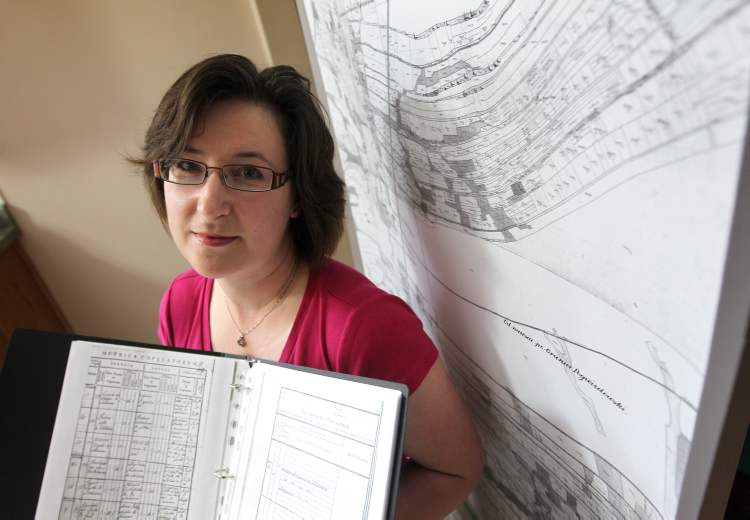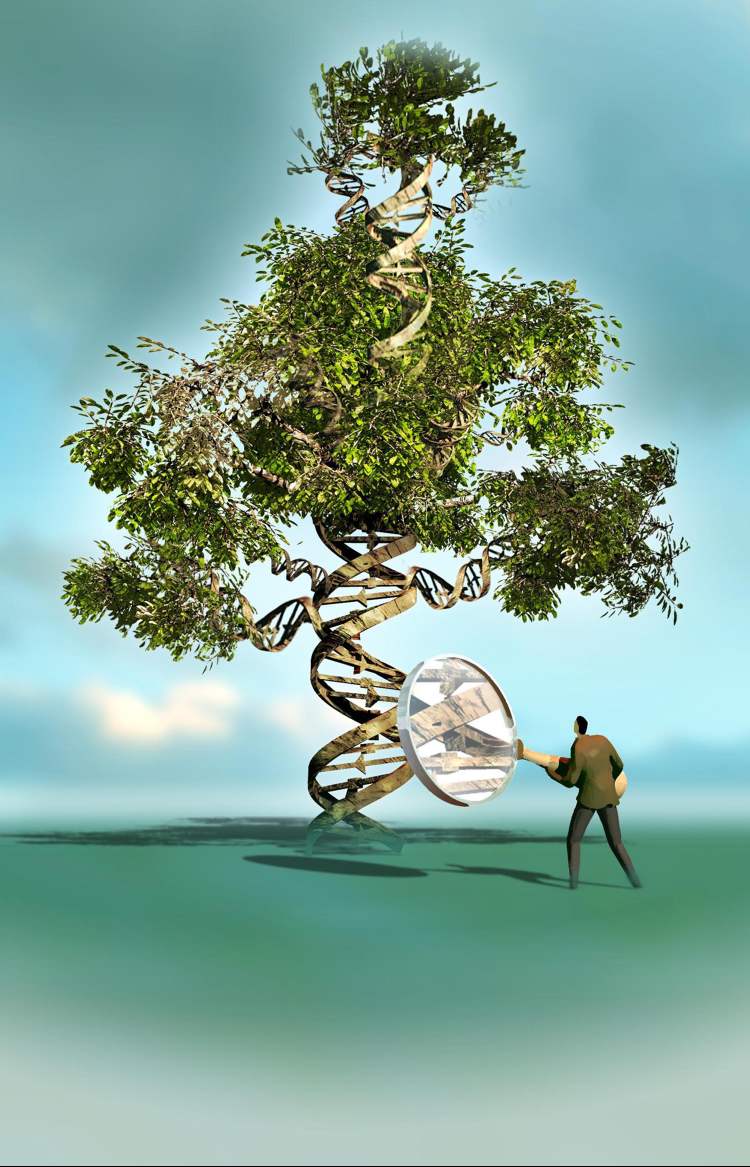Genealogical searches connect present to past
People get a sense of their roots
Advertisement
Read this article for free:
or
Already have an account? Log in here »
To continue reading, please subscribe:
Monthly Digital Subscription
$0 for the first 4 weeks*
- Enjoy unlimited reading on winnipegfreepress.com
- Read the E-Edition, our digital replica newspaper
- Access News Break, our award-winning app
- Play interactive puzzles
*No charge for 4 weeks then price increases to the regular rate of $19.00 plus GST every four weeks. Offer available to new and qualified returning subscribers only. Cancel any time.
Monthly Digital Subscription
$4.75/week*
- Enjoy unlimited reading on winnipegfreepress.com
- Read the E-Edition, our digital replica newspaper
- Access News Break, our award-winning app
- Play interactive puzzles
*Billed as $19 plus GST every four weeks. Cancel any time.
To continue reading, please subscribe:
Add Free Press access to your Brandon Sun subscription for only an additional
$1 for the first 4 weeks*
*Your next subscription payment will increase by $1.00 and you will be charged $16.99 plus GST for four weeks. After four weeks, your payment will increase to $23.99 plus GST every four weeks.
Read unlimited articles for free today:
or
Already have an account? Log in here »
Hey there, time traveller!
This article was published 04/06/2013 (4536 days ago), so information in it may no longer be current.
And you thought cable TV was the go-to source for historical mysteries rife with drama and intrigue, and colourful characters with skeletons rattling around in their closets.
Try giving your family tree a shake.
When Susan Janzen began planning her vacation to Poland in 2010, she was just a curious Manitoba tourist hoping to learn a bit about her ancestors while enjoying the art and history of the old country.

That was before she joined the East European Genealogical Society. Turns out the Landmark resident was born of noble blood. Her great-grandfather was a Polish count, as well as a knight.
During her trip abroad, Janzen ended up visiting a town that her family used to own, and that had actually been named for them. She also got to meet some distant relatives.
“Everybody has a story, they just don’t know it,” says Janzen, who even attended a royal ball when she returned to Poland this year.
Most of us don’t realize what our ancestors sacrificed and endured in order for us to have the lives we do, she says.
“My family went from dining in castles to not knowing if their kids were going to starve. Every second person in my family tree was murdered, and that’s what would have happened to my great-grandfather if he had stayed.”
For a pastime that centres around dead people, geneaology is amazingly popular. Some sources say it’s North America’s top hobby next to gardening.
Genealogy ranks second only to porn as the most-searched topic on the Internet, Bloomberg Businessweek recently reported. According to a January 2012 report by market research firm Global Industry Analysts, an estimated 84 million people around the world spend anywhere from $1,000 to $18,000 a year searching for their ancestors.
The popularity of TV shows like Who Do You Think You Are? and Faces of America, which dig up the roots of famous people, has no doubt helped spark new interest in genealogy.
However it’s the search tools of the digital age — family tree-making computer programs, chat rooms where people can share tips and leads and websites like Ancestry.com, which has a reported two million subscribers — that are powering the phenomenon.
And while Ancestry.com may be leading the commercial pack, it’s not the sole player in the online genealogy industry.
The Church of Jesus Christ of Latter-day Saints has been gathering genealogical records from around the world since just after the Second World War. Its collection of 2.5 million rolls of microfilm — each roll holds about 300 pages of original civil records of birth, marriage and death, as well as baptisms, land ownership and military service, etc. — is housed in more than 4,500 “family history centres” in 80 countries, including here in Winnipeg.
Most of the records, which are available to the public free of charge, are also available online at FamilySearch.org.
Anyone who wishes to heed the Greek imperative “Know thyself” can access records via the website (which offers live help), or borrow microfilms from the Mormon Church’s Family Search headquarters in Salt Lake City.
Kahlile Mehr, one of North America’s top genealogy experts, was in town Saturday to give a day-long seminar in Winnipeg on how to navigate the world’s largest collection of family history records. It was hosted by the East European Genealogical Society, which has about 400 members.

“Knowing your ancestors is getting to know yourself better,” says Mehr, who worked at the LDS Family History Library for 35 years, and was its Slavic collections manager for 20 years.
“Much of what you are is the result of the environment in which you grew up and in which your ancestors grew up,” he says. “In many ways, you are them. And just knowing them has a beneficial impact on you in that you start seeing yourself as part of something much larger than you.”
Mehr, a Mormon who traced his own ancestors back to the very first French Canadians who arrived in Quebec in the 1600s, visited every country in eastern Europe multiple times to make sure the right documents and records were getting captured on film.
Members of the Mormon Church have a “religious mandate” to trace their ancestors, Mehr explains, because they believe they can “unite families for eternity” by baptizing people posthumously. Or “by proxy,” as he puts it.
Winnipegger Marni Domolewski is not Mormon, but she ordered microfilm through the city’s Family History Centre to help her locate several of her ancestral villages in Poland. She was able to trace her mother’s family back to the mid-1700s.
So by the time she actually visited that country, she was able to stand on the same ground where her great-great-great grandfather built the Sutyla family homestead. The family who currently use the property for a vacation home turned out to be relatives.
“I basically did my homework before I left so I wouldn’t spend my time in Poland sitting in the archives for hours on end,” says Domolewski, who chairs the East European Genealogical Society’s membership committee.
Genealogy is much more than a bunch of names and dates, says the daycare operator, who is now researching her husband’s Lithuanian roots.
“This hobby gives us a chance to bring our past to the present and understand the history,” she says. “The relationships we establish can give us a feeling of global connection. And above all else, it’s about the family ties that bind us all together.”
For more information, visit www.eegsociety.org.
carolin.vesely@freepress.mb.ca
History
Updated on Tuesday, June 4, 2013 7:28 AM CDT: replaces photo, changes headline

